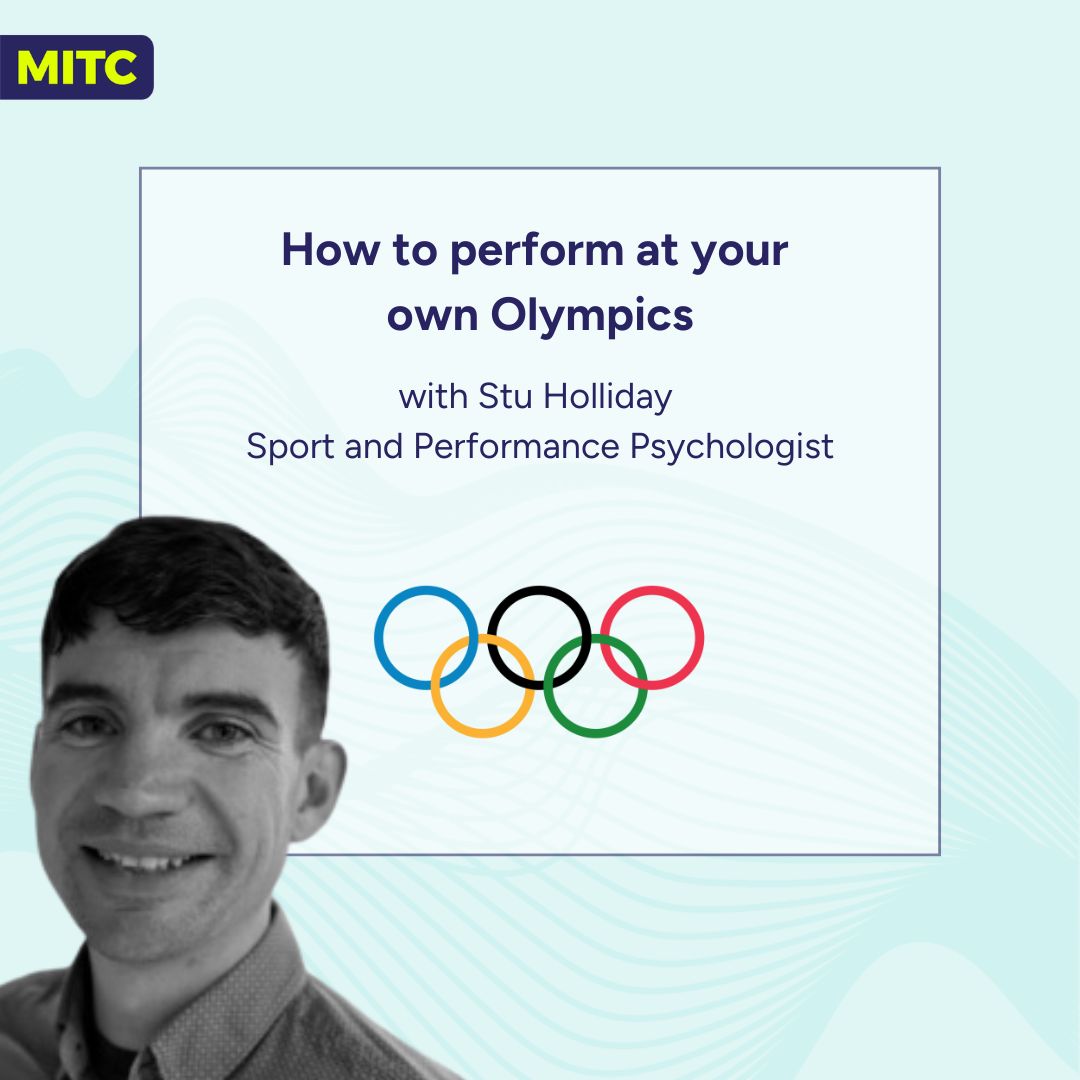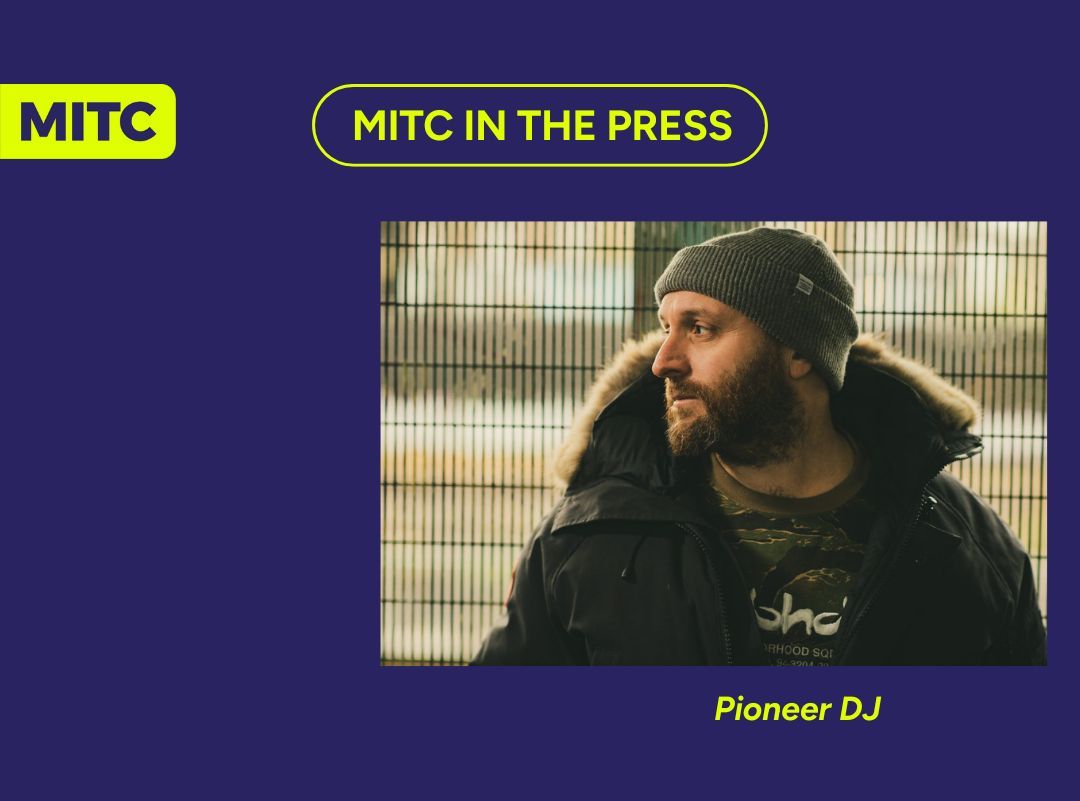MITC Psychologist Stu Holliday is unique in our group as he comes from a Sport and Performance training and background. As well as his time working in the music industry in his 20s, he was also to be found at the track in Mile End, London (where the US Olympic athletics team were based in the 2012 games) during his Sport Psychology training, supporting elite running coaches and future Olympians. Having a sporting as well as musical upbringing, Stuart has managed to meld these two passions in his later work by supporting the mental health and performance of both athletes and people in the music business. And as he says, the parallels between the two are strong.
He is fortunate to work with exceptional people who display their talent to the World on the biggest stages, in sport, and on show at concerts, festivals, and in the media. The pressures and emotional toll that both groups experience are almost identical. Very driven, talented people, who spend their working lives building up for big events, spending time in unique institutions, and time away from their loved ones and home. Because fitness and sport are common to nearly all of us to a greater or lesser extent, Stuart often brings a unique ‘sporting approach’ to his work with artists and staff in the industry – not in getting them to physically exercise, but in helping people prepare for performance and the rigours of everyday life in high pressure environments that have all eyes on them of the watching world and people feel constantly ‘on’. A lot of Stuart’s work helps people develop their mindset about their ability to cope with pressure, expectation, and self-belief that they’re doing the right thing. Regardless of whether they are the star or part of the supporting cast.
When working with clients, Stuart believes everyone has their own ‘Olympics’ that they are preparing for. Whether that’s the actual games like you’re seeing from Paris, or whether it’s a show, tour, difficult situation that you are trying to get through, or a challenge that you are ultimately working for. The reality of preparing for the high points of performance sit on a foundation of often hard, sometimes boring, often lonely days and nights grafting for what can be quite short moments for what feels that you have been working for. Many unseen hours that the public don’t see and where you need your mindset focused to stay on task and avoid distraction, avoid the urge to cruise and deal with difficult moments, situations and sometimes people!
Reflecting on the key lessons learnt from being part of Performance programmes and working alongside both the performers and the ‘team behind the team’ – these are 10 lessons that he believes whatever your environment can help you deliver.
1) Start with the end in mind. Olympics have a hard start date. The same is true with touring/schedules/life, so you have to work backwards from your dream destination with practical steps in order to avoid feeling overwhelmed and that you have a clear path to success.
2) Understand your why. Having a defined purpose that you can drill down on as to why you’ll put yourself through the toughest times to reach a goal is crucial to keeping a cool perspective when you want to quit (which you will at some point!).
3) Develop an Olympian like mindset. Choosing how you see yourself, others, & the world gives you agency AND will help you mentally understand the demands required to reach your goal via acting as the person you want to be. If you want to be an Olympian/artist/manager/crew, you need to think like one! Demonstrate the behaviours that will help you achieve.
4) Nail the brilliant basics. Whether you are an athlete, artist or crew, you have to get the essentials rights to have the foundations to succeed. The fancy stuff in life or sport won’t work if you haven’t got the basics locked down. As proved by multiple successful Olympics teams.
5) Get to know youself. Who are you & how do you react under pressure? It can be hard work to face up to how you think, act, & feel, but taking the time to reflect (maybe via journal or voice note) can be both carthartic and painful, as you’re being honest with yourself. But you are more likely to also reveal your strengths to help make better decisions in the future!
6) Recovery is key! Whether physically or mentally. Overworking in sport or life can lead to overtraining, burnout, or chronic stress. Taking some downtime, however brief, may feel like you’re not on task, but it allows good work to bed in AND thinking space to make and take better choices.
7) Build your tribe: We are social creatures, no one does it alone. Having a tight circle of your best cheerleaders, who give it you straight, and like you for who you are through thick and thin can help give you more energy at difficult times. Have at least one accountability partner you wholly trust.
8) Who are you at your worst? You must work on your emotional imperfections or when we’ve messed up. It’s not easy looking in the mirror but doing so life better and productive for both you and those around you. Plus, it breeds resilience, coping & inner strength to confronting uncomfortable characteristics.
9) Be a good loser. If Roger Federer can be considered the GOAT in tennis with a win ratio of only 54% of the total points he played, the lesson is that we will lose almost as much as we’ll succeed! Navigate failure or success with grace & stick to the process, to be gracious when things don’t go well, to fully appreciate when they do.
10) Build your inner scorecard. Win at all costs mentality is mentally draining, detrimental, and deprives you of appreciating the journey. What is REALLY important to you? It is unlikely to be just life’s victories. Develop your best sense of self & best behaviours and you’ll be better able to cope with the ups and downs of the journey. Success is best appreciated when you are aligned internally with what the world sees externally.






